Rituals are intentional acts that give deeper meaning to daily activities. They can significantly enhance your well-being by adding mindfulness and purpose to your actions, much like the alchemy of turning base metals into gold. In this article, discover what rituals are, their benefits, and how to incorporate these rituals into your life, as each ritual can transform your routine into a more meaningful experience.
Follow Exorcista for more stories and rituals!
Key Takeaways
- Rituals, distinguished from routines by their intentionality, enhance mindfulness and transform ordinary tasks into meaningful experiences.
- Engaging in rituals promotes mental well-being, provides a sense of purpose, and fosters community connections, thereby enhancing emotional resilience.
- The evolution of rituals in the modern world reflects technological advancements, leading to new forms of digital rituals that maintain cultural significance while adapting to contemporary lifestyles, much like how financial advisors tailor their services to meet the unique needs of their clients.
Introduction to Well-being
Well-being is a holistic concept that refers to a person’s overall quality of life, encompassing their physical, emotional, and financial health. It is often measured by factors such as income, net worth, and access to scarce resources. In the context of wealth, well-being can be defined as the ability to maintain a certain standard of living, free from financial stress and uncertainty.
Research has shown that well-being is closely tied to one’s relationship with money. Those who have a positive and mindful approach to finances tend to have higher levels of well-being. For example, a person who prioritizes saving and investments, and has a clear understanding of their assets and liabilities, is more likely to experience financial well-being.
Well-being can also be influenced by factors such as social connections, community involvement, and a sense of purpose. This highlights the importance of a holistic approach to wealth management. In modern societies, well-being is often seen as a key indicator of a person’s or country’s wealth, with many governments and organizations prioritizing initiatives that promote well-being and reduce inequality.
The concept of well-being is complex and multifaceted, and can vary greatly from person to person, and from one culture to another. Despite this, there are certain common factors that contribute to well-being, including a sense of security, freedom, and opportunity. By prioritizing well-being and taking a mindful approach to wealth, individuals can create a more fulfilling and meaningful life, and contribute to the greater good of their community and society.
What Is a Ritual?
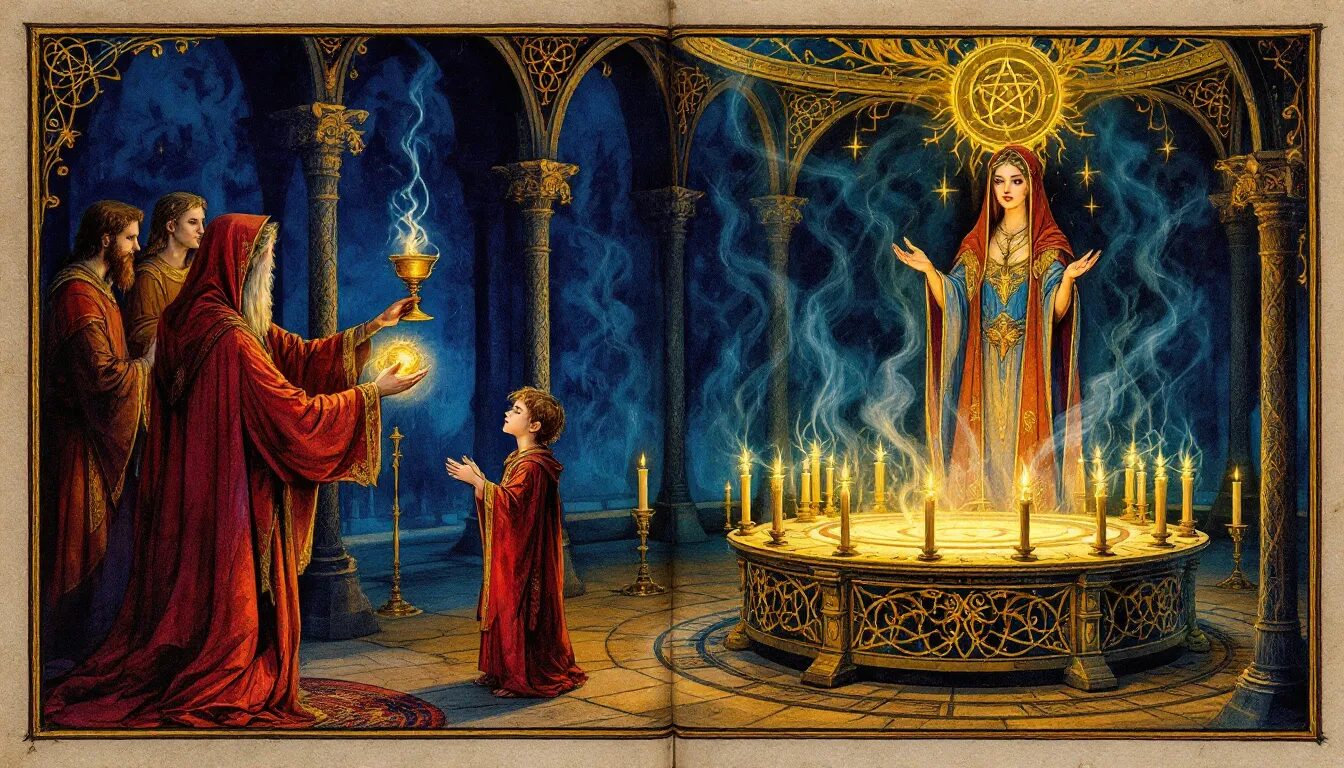

Rituals are ceremonial acts prescribed by tradition or religious authority, setting them apart from everyday routines. Unlike unconscious and repetitive habits, rituals are intentional acts with a specific cultural purpose. The key difference lies in the level of intentionality and awareness behind the actions; while routines are often automatic and may lack meaning, rituals involve a deeper engagement and a sense of purpose.
Rituals can also take place in specific buildings designed for ceremonial purposes, such as temples, churches, and community centers.
A ritual’s significance comes from the individual’s engagement and intentionality. This focus transforms ordinary tasks into meaningful experiences by enhancing mindfulness and concentration. For instance, a simple act like drinking tea can become a ritual when performed with mindfulness and a sense of gratitude.
Rituals bring deeper connection and purpose to daily life. Infusing everyday actions with intention and mindfulness transforms them into enriching rituals, providing structure and meaning. This intentional approach to daily activities can significantly enhance our overall well-being.
The Importance of Rituals
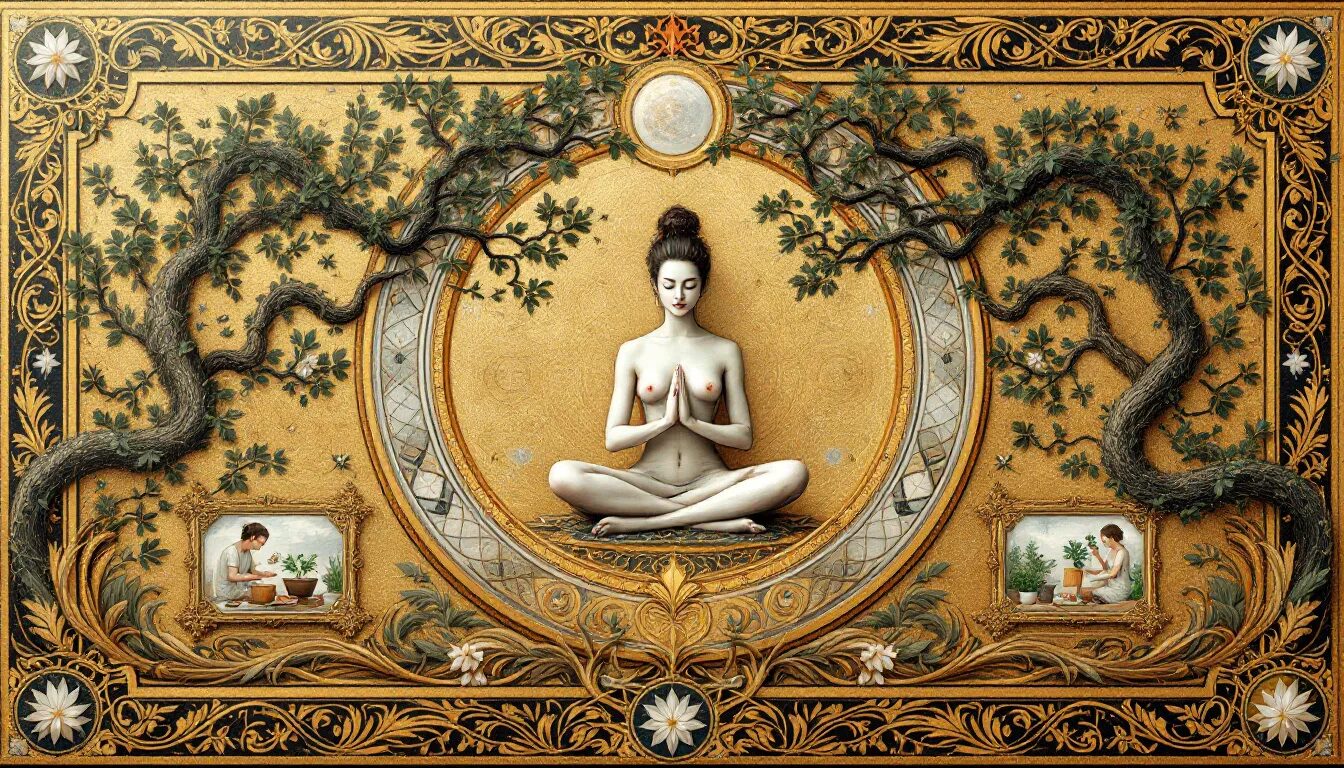

Engaging in rituals can significantly enhance mental well-being by providing structure and a sense of purpose. Both spiritual and secular rituals have been shown to alleviate stress and reduce symptoms of anxiety and depression. This is because rituals create a predictable and stable framework within which we can navigate the uncertainties of life. Setting a clear intention at the start of a ritual guides our actions and focus throughout the practice.
Rituals also play a crucial role in community health. They provide structure, encourage discipline, and foster a sense of belonging among members. Shared rituals create deep connections, allowing community members to feel part of something larger than themselves, much like how businesses foster loyalty and trust among their customers through consistent and meaningful engagement. For example, structured team rituals can significantly improve job satisfaction and interpersonal relationships among employees. Modern employee engagement strategies now focus on incorporating rituals that promote mental well-being and resilience training.
On a personal level, rituals help establish predictability in daily life, contributing to emotional resilience amid chaos. Personalized rituals that resonate with individual values and beliefs can have a profound positive effect on mental health. Any meaningful daily activity can become a ritual through intention and mindfulness.
Ending a ritual with gratitude acknowledges the experience and reinforces its positive aspects.
Types of Rituals
Rituals can be divided into categories based on their functions and purposes, such as:
- Religious rituals
- Cultural rituals
- Personal rituals
- Community rituals
Each type offers unique benefits and experiences, serving an abundant role in enriching our lives and connecting us to our heritage, beliefs, and class relationship groups, adding value to our wealth story experiences.
Next, we explore religious, cultural, and personal rituals, examining how they may vary in their physical differences and benefits as they are measured across a range of contexts, excluding a point of focus on their significance and the combination of measures that contribute to their understanding of saving and savings.
Religious Rituals
Religious rituals often aim to foster a connection between believers and their deity, playing a critical role in community identity and spiritual practice. These rituals are a form of sacred communication, expressing reverence and facilitating connections between practitioners and the divine. For example, to define definitions of practices like baptism or bar mitzvah refer to important transitions within faith communities and hold significant sacred meaning.
These rituals are more than just symbolic acts; they are profound expressions of faith and spirituality that bind communities together. Participating in religious rituals reaffirms beliefs and strengthens a sense of belonging to a larger spiritual family. This communal aspect enhances social cohesion and provides shared purpose and identity.
Cultural Rituals
Cultural rituals are deeply rooted in heritage and often include festivals and traditional customs that celebrate and preserve cultural identity. These rituals encompass traditions tied to a community’s heritage, such as festivals and ceremonies, which play vital roles in expressing identity and shared values. For example, national holidays, harvest festivals, and other cultural events are occasions for communities to come together and celebrate their shared history and traditions.
Cultural rituals reinforce community bonds and maintain a sense of belonging. Participation connects individuals with their heritage and supports the continuity of cultural narratives. These shared experiences foster a sense of unity and collective identity, which is crucial for the survival and flourishing of any culture.
Personal Rituals
Individuals often create personal rituals that enhance daily life, such as morning routines or practices aimed at mindfulness and reflection. These rituals can include daily habits like meditation, exercise, or journaling, designed to enhance individual well-being and mindfulness. Incorporating these practices into daily life creates meaningful experiences that promote order and purpose.
Personal rituals create meaningful experiences within daily routines. A morning meditation can set a positive tone for the day, while evening rituals like reading or journaling offer closure and reflection. These rituals are tailored to individual needs and preferences, making them powerful tools for maintaining well-being and mindfulness.
How to Create Your Own Rituals
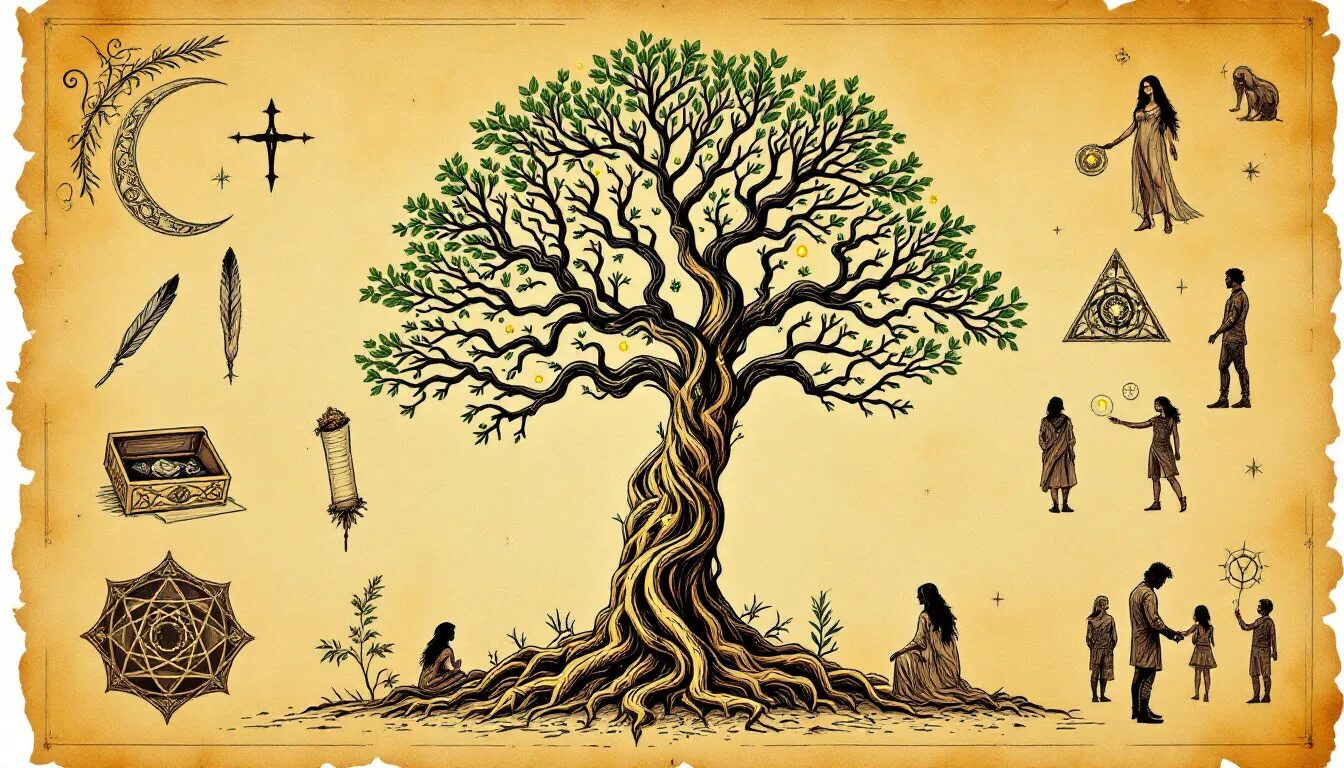

Creating your own rituals involves establishing a special environment, such as using an altar, calming elements like flowers, candles, or music, and a dedicated space, which can serve as a sign of the ritual’s significance. The environment enhances the ritual’s importance.
Reflection is crucial for meaningful rituals. Here are some key points to consider:
- Setting a clear intention at the start helps focus your mind.
- Allowing time for contemplation aids in reflecting on personal aspirations and fears.
- This mindfulness and intentionality transform ordinary actions into powerful practices.
- These practices enrich your life and foster a deeper connection with yourself and your surroundings.
Rituals in the Modern World
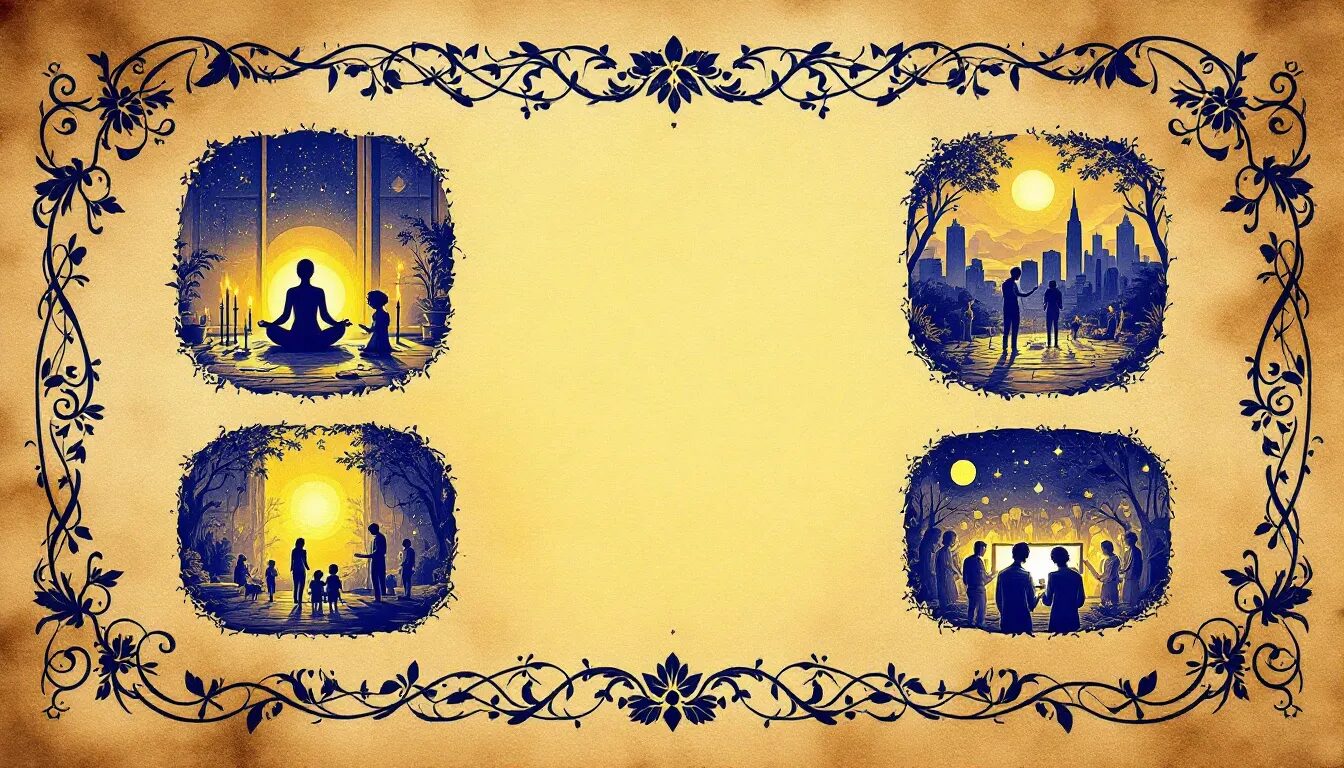

The rise of remote work and digital communication has led to the evolution of rituals in the modern world. Virtual rituals like online coffee breaks and remote check-ins have become common as people seek new ways to connect and engage. These digital adaptations maintain the essence of traditional rituals while catering to the needs of modern life.
As cultural practices adapt to digital forms, questions about the concept of authenticity and the preservation of original meanings become increasingly significant, contributing to the total wealth of cultural heritage. Ethical considerations in technology integration are vital to ensure cultural advisors practices are represented respectfully and authentically in digital spaces.
Despite these challenges, rituals continue to evolve, maintaining their relevance and significance in our lives, as various forces shape their development through this flow process.
Mindful Consumption
Mindful consumption refers to the practice of being aware of one’s spending habits and making intentional purchasing decisions. It involves considering the value and impact of each purchase, and avoiding impulse buys and unnecessary expenses. Mindful consumption can help individuals develop a healthier relationship with money, and reduce waste and excess.
By being more mindful of their consumption, individuals can also make more sustainable and environmentally-friendly choices, which can have a positive impact on their well-being and the well-being of others. For instance, choosing to buy locally sourced and organic products can support the local economy and promote environmental sustainability.
Mindful consumption can also involve adopting rituals and practices that promote gratitude and appreciation, such as writing down things one is thankful for each day. Additionally, mindful consumption can involve setting clear financial goals and priorities, and making conscious decisions about how to allocate one’s resources.
By adopting a mindful approach to consumption, individuals can reduce stress and anxiety related to money, and create a more positive and fulfilling relationship with wealth. Mindful consumption can also involve exploring alternative forms of exchange and commerce, such as bartering and sharing economies. Ultimately, mindful consumption is about cultivating a deeper awareness and appreciation of the value and impact of one’s purchasing decisions, and making choices that align with one’s values and goals.
Scientific Perspective on Rituals
Scientific research provides valuable insights into the benefits of rituals. Studies have shown that rituals can lower the brain’s response to performance errors, indicating a buffer against anxiety and uncertainty. This phenomenon, known as error-related negativity (ERN), reflects the emotional impact of performance errors and can be influenced by engaging in rituals.
Rituals may enhance goal-directed performance by regulating emotional responses to failure. Arbitrary rituals have been found to decrease anxiety and improve confidence, leading to better task performance. These findings suggest that rituals can enhance self-efficacy and positive expectations, which may indirectly lead to improved outcomes.
This scientific perspective underscores the practical benefits of rituals, highlighting their role in enhancing emotional and psychological well-being. By incorporating convenient rituals into our daily lives, we can harness these benefits to improve our overall quality of life.
Rituals and Community Building
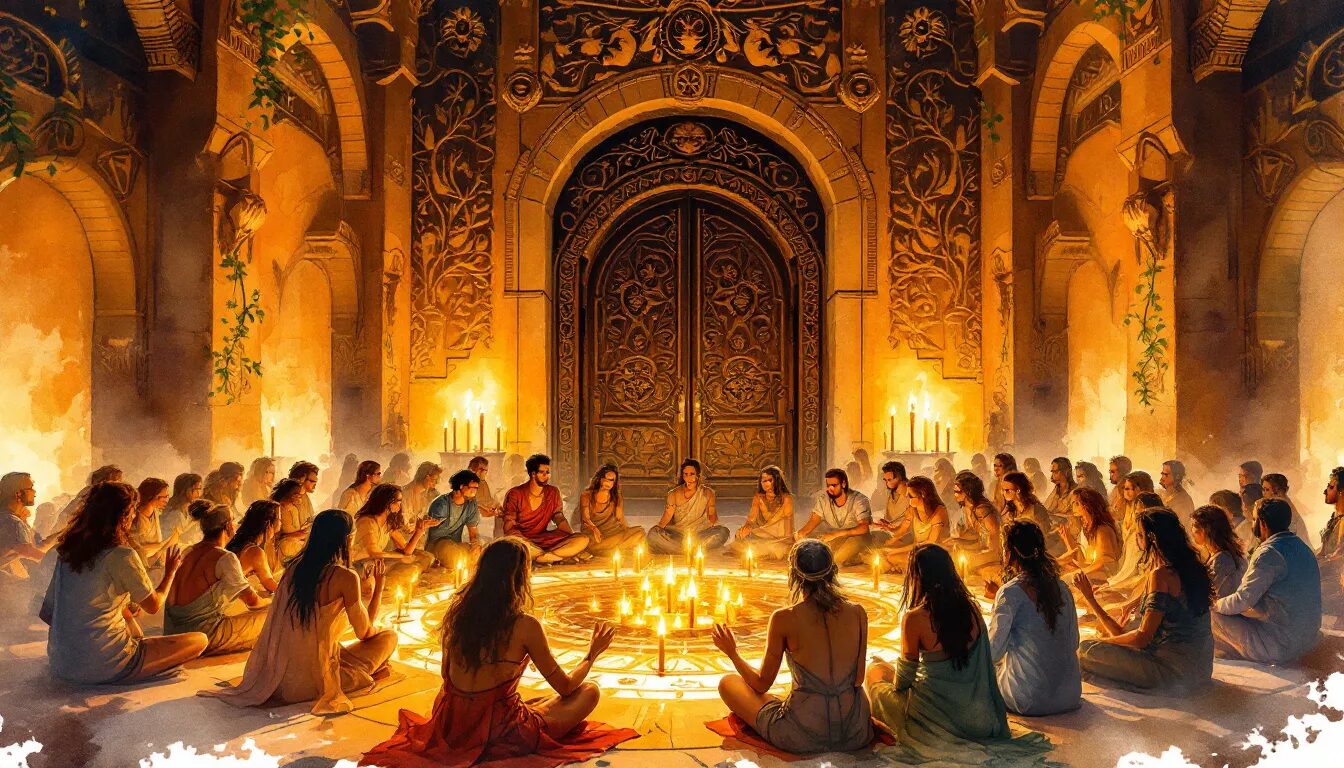

Rituals play a critical role in defining social identities and maintaining cultural cohesion across various societies and countries. Through symbolic acts, rituals express shared beliefs and values, reinforcing the collective identity of a community. Community rituals foster connections and create support networks, vital during difficult times.
Examples of community rituals include:
- Reddit’s ‘Cake Day’, which celebrates a user’s anniversary of joining the platform
- Seasonal trends like the Pumpkin Spice Latte launch, which become community rituals that instill excitement and anticipation among participants
- The Ice Bucket Challenge, which is another example of a social media ritual that not only involved participation but also significantly raised awareness and donations for ALS.
Community rituals enhance participation by binding individuals together and facilitating the transfer of knowledge, allowing experienced members to teach traditions to newcomers. In this way, rituals contribute to the accumulation and evolution of community practices.
Gratitude and Abundance
Gratitude and abundance are closely linked concepts that can have a profound impact on one’s relationship with wealth and well-being. Practicing gratitude involves focusing on the things one already has, rather than dwelling on what is lacking. This can involve keeping a gratitude journal, sharing appreciation with others, or simply taking time to reflect on the good things in one’s life.
Abundance refers to the idea that there is always enough, and that one’s needs will be met. Cultivating a sense of abundance can involve letting go of scarcity mentality and embracing a more expansive and generous approach to life. For example, sharing one’s resources and talents with others can create a sense of abundance and connection.
Gratitude and abundance can also be practiced through rituals and ceremonies, such as holding a gratitude circle or creating an abundance altar. By focusing on gratitude and abundance, individuals can shift their perspective and create a more positive and empowering relationship with wealth. This can involve recognizing the abundant resources and opportunities that are available, and trusting that one’s needs will be met.
Ultimately, gratitude and abundance are about cultivating a deeper sense of trust, faith, and connection to the world around us, and recognizing the intricate web of relationships that support our well-being.
Resilience and Adaptability
Resilience and adaptability are essential qualities for navigating the complexities and uncertainties of modern life. Resilience refers to the ability to bounce back from challenges and setbacks, and to maintain a sense of well-being and stability in the face of adversity. Adaptability involves being open to change and willing to pivot when circumstances shift.
In the context of wealth and finance, resilience and adaptability can involve developing a range of skills and strategies for managing risk and uncertainty. For example, having a diversified portfolio, building an emergency fund, and staying informed about market trends can help individuals navigate economic ups and downs.
Resilience and adaptability can also involve cultivating a growth mindset, and being willing to learn and adapt in response to new information and challenges. By developing resilience and adaptability, individuals can create a more stable and secure financial foundation, and be better equipped to handle unexpected events and challenges.
This can involve prioritizing self-care and stress management, and building a support network of friends, family, and community. Additionally, resilience and adaptability can involve embracing a sense of curiosity and wonder, and being open to new experiences and opportunities.
Ultimately, resilience and adaptability are about cultivating a sense of flexibility and responsiveness, and being able to navigate the complexities and uncertainties of life with ease and confidence.
The Future of Rituals
Technological advancements are reshaping cultural identities and practices, influencing how rituals are formed and performed globally. The internet and digital platforms facilitate cross-cultural interactions, leading to new hybrid forms of rituals that blend traditional practices with modern influences, as opposed to strictly adhering to historical norms. Virtual environments enable new forms of community and ritualistic practices, allowing individuals to engage in cultural expressions beyond their geographical limitations.
In an increasingly digital and globalized world, technology is fundamentally changing the nature of rituals. As we move forward, it will be fascinating to see how rituals continue to evolve and adapt, blending the magic of the past with the innovations of the present, and the generation of the future.
Summary
In summary, rituals are an essential aspect of human life, providing structure, meaning, and connection in our daily activities. From religious and cultural rituals that bind communities together to personal rituals that enhance individual well-being, these practices play a vital role in our mental and emotional health, contributing to a wealthy and fulfilling life. The intentionality and mindfulness involved in rituals transform ordinary tasks into significant experiences that enrich our lives.
The evolution of rituals in the modern world, particularly in digital spaces, highlights their adaptability and enduring relevance. Scientific research supports the benefits of rituals, underscoring their ability to reduce anxiety, enhance performance, and foster a sense of purpose. As we look to the future, technological advancements will continue to shape how rituals are practiced and experienced, creating new opportunities for connection and cultural expression.
Ultimately, rituals are a testament to the human need for connection, meaning, and continuity. By embracing and creating our own rituals, we can foster a deeper sense of well-being and community in an ever-changing world.
Frequently Asked Questions
What is a ritual?
A ritual is a ceremonial act prescribed by tradition or religious authority, characterized by intentionality and meaningful engagement beyond everyday routines. Therefore, it holds a significant place in cultural and spiritual practices.
How do rituals benefit mental well-being?
Rituals significantly benefit mental well-being by offering structure and predictability, which in turn reduces stress and anxiety. This reliable framework fosters emotional resilience during challenging times.
What are some examples of cultural rituals?
Cultural rituals encompass a variety of practices, including festivals, ceremonies, and traditional celebrations, which play a vital role in maintaining and expressing cultural identity. Examples include national holidays and harvest festivals.
How can I create my own rituals?
To create your own rituals, establish a dedicated environment, set clear intentions, and include elements of reflection and mindfulness. This approach will help you cultivate meaningful and personal practices.
How are rituals evolving in the modern world?
Rituals are evolving in the modern world by incorporating digital and virtual forms, thus blending traditional practices with technological advancements. This adaptation reflects the changing dynamics of society and how individuals connect with their cultural heritage.











